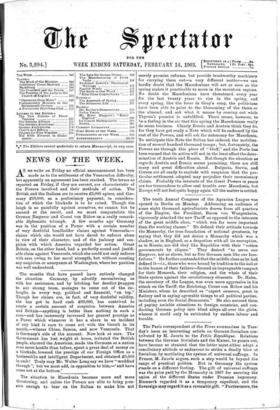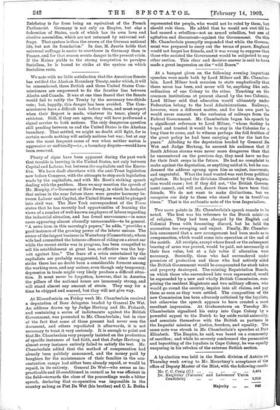The Paris correspondent of the Times summarises in Tues- day's
issue an interesting article on German Socialism con- tributed by M. Jaures to the Petite .Thipublique. Relations between the German Socialists and the Kaiser, he points out, have become so strained that the latter must either adopt a conciliatory attitude or endeavour to strike a deadly blow at Socialism by mutilating the system of universal suffrage.. In France, M. Jaurea argues, such a step would be beyond the range of practical politics. But in Germany the system stands on a different footing. The gift of universal suffrage was the price paid by the Monarchy in 1867 for securing the union of the different States under Prussian hegemony. Bismarck regarded it • as a temporary expedient, and -the Sovereign may regard it as a revocable' gift. "Furthermore, the Reichstag is far from being an equivalent of the French Parliament. Germany is not only an Empire, but oleo a federation of States, each of which has its own laws and elective assemblies, which are not returned by universal suf- frage. That system is thus the crown of the German national life, but not its foundation." In fine, M. Jaures holds that universal suffrage is easier to overthrow in Germany than in France, and for that reason scents danger in the present crisis. If the Kaiser yields to the strong temptation to paralyse Socialism, he is bound to strike at the system on which Socialism rests.







































